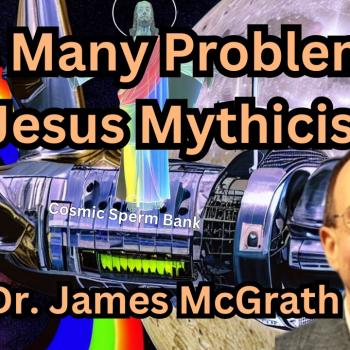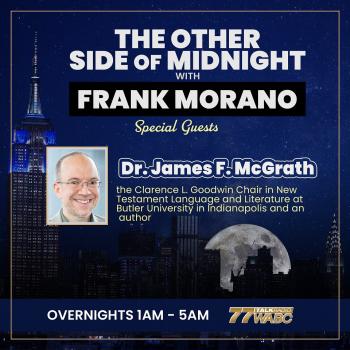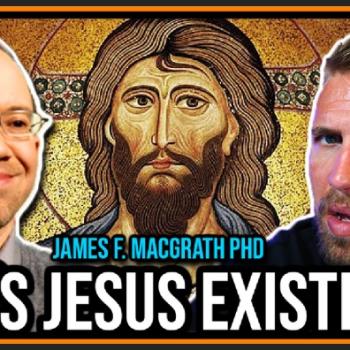John Loftus drew attention to the lecture above. Here are some comments on it.
The presentation starts with best books, mentioning Richard Purvo, Dennis MacDonald, and John Dominic Crossan. This was misleading, because these scholars do not draw the distinctive conclusions that Carrier does.
Luke-Acts is said to have been written by the same guy, and as a response to Matthew, which in turn was a response to Mark. Brief and oversimplified summaries of the aims of each Gospel. Carrier mentions the consensus (Q) but says that it is a non-viable hypothesis that never ought to have been proposed. This is the same unfortunate kind of thing you get from Christian apologists. While one may well be able to make a scholarly case against an earlier view, the idea that those earlier scholars were foolish is ridiculous. Scholarship is progressive, and it is often possible to see more clearly in light of what others did before us.
“Luke was an outstanding historian” – this quote from Maurice Casey is said by Carrier to be absurd. Carrier says he was not a good historian, or even trying to be a historian. Luke doesn’t identify his qualifications (Luke does say in his preface that he researched the subject!). He doesn’t name or evaluate his sources. Even Suetonius indicates his methodology (he acknowledges being a gossip-monger?).
Carrier then says that Luke was pretending in his preface! And he says that Luke in his preface espouses a lousy method, where Carrier previously said that Luke fails to articulate his method at all. And he interprets the preface to mean that he says he would slavishly reproduce his sources, and then criticizes him for not doing so!!!
Carrier mentions Colin Hemer, who shows that the background information in Acts is often verifiable as accurate. And so implicitly, Luke must have been a superb author of historical fiction. But if Luke was aiming to record history, and got background information accurate consistently, then perhaps a different conclusion is at least possible?
Talking about Acts as in the genre of ancient novel, Carrier treats Paul and Lydia as a nod to the chaste couple who are reunited! He mentions that novels always have travel, divine revelations, and exciting escapes. And he says Acts lines up “perfectly” with the ancient novel.
Carrier says that Luke is “lying” because of disagreements with and omissions in comparison with Paul’s letters. Calls it “revisionist history” – but how can it be that and a novel? He assumes that Paul is telling the truth in Galatians.
Mentions Jesus flying off into outer space.
His suggestion that Luke mistook “Gerazim” for “Galileans” seems unlikely. But he does present an interesting summary of the possible evidence for Luke drawing on Josephus, which some mainstream scholars have proposed. But once again, Carrier says that in reproducing Josephus, Luke is thus “not writing history,” which is rather bizarre. Drawing on a historian does not by any stretch of the imagination prove that someone is not trying to write history!!!
He mentions the parallels that are made between characters in Acts and Jesus in Luke. Showing parallels between a key figure and that person’s followers is not uncommon, although certainly ancient writers do not do that in ways that modern writers would. He says that Ananias and John are “the same word” or a palindrome.
In the Q&A, he emphasizes that his “peer reviewed academic papers” show that the references to Jesus in Josephus and Tacitus were added by Christians. But he says that even if Tacitus wrote what is attributed to him, it doesn’t corroborate the historicity of Jesus.
Carrier says there are 6-7 people with PhDs who are agnostics about the existence of Jesus or think Jesus didn’t exist.
He assumes that Jesus was “God” for the earliest Christians!
Carrier says that Irenaeus was referring to people who thought that Jesus was born, lived, and died in outer space, but Irenaeus misunderstood them and we do not have the works of those who held those views! He also says that 2 Peter is talking about Christians who say that the Gospels are myths. That is quite a stretch, to read modern mythicism into that brief reference!
It would be unfair to assume that a speech of this sort does justice to the person’s more carefully articulated academic publications. But if this is an accurate summary of Carrier’s arguments and stance, then it is a disappointing mess of contradictory claims.
















